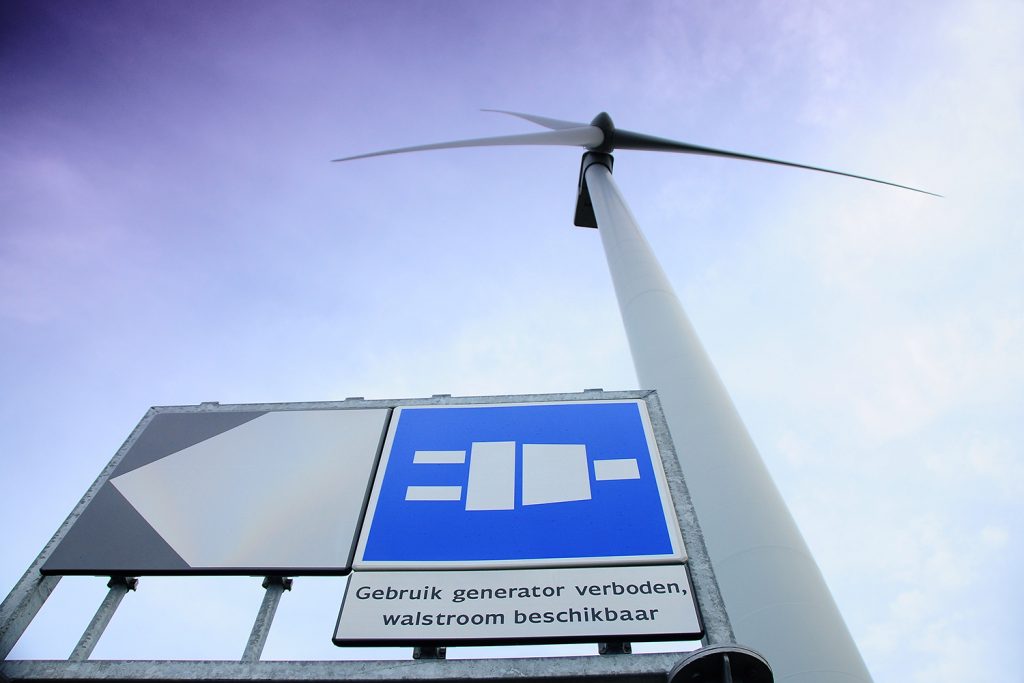As of October 1st, 2021, the Port of Rotterdam takes the lead in a new European project: Magpie [1]. Magpie is a Horizon2020 research and demonstration project, under the Green Deal Program. In this large scale project, the Port of Rotterdam takes up the lead position and collaborates with the port authorities of HAROPA PORT (France: Le Havre, Rouen, Paris) and Sines (Portugal) DeltaPort (Germany), furthermore with 10 research institutions and more than 30 companies from the Netherlands, Germany, France, Portugal, Denmark and Sweden, among these also the Erasmus Center for Urban, Port and Transport Economics (Erasmus UPT) [2]. The broad-based, international research and demonstration program focuses primarily on accelerating the development and adoption of new sustainable technologies, green fuels and sustainable logistical practices. The project not only takes an energy and fuel based technological perspective, but also investigates and develops the enabling potential of digitalization in this context. In addition, it is being assessed how companies can best be stimulated to make their logistics more sustainable, with so-called non-technological innovations. This then all comes together in an integral Masterplan for a port to transform phase-by- phase towards a zero-emission port in 2050.
The logic of the project
To flatten the curve of climate change, urgent actions are needed. Seaports will play a major role in it by facilitating a boost in the use of clean fuel technologies, green energy carriers and green logistics. It is however not yet clear which types of energy, fuels and fuel carriers the industry will adopt, also not for which specific sectors and modes of transport. Various sustainable fuels and energy carriers are now being developed, like green hydrogen, large electric batteries, ammonia and bio-LNG. They all have their advantages and challenges. Where one type seems more suitable for shipping, the other rather for use in the port itself or for transport to inland destinations.
Considering phasing in development, some new technologies have already been tested, others have not yet. That means that we are in a phase in which parallel a variety of new technologies must be (further) developed, tried-out, implemented and scaled-up, with up-front uncertainty on final level of success. Thereby, speeding up the implementation and scaling-up of new technologies and forms of sustainable energy not only depends on the quality and accuracy of the new technologies itself, but also on the availability and adoption of new digital tools, and on the level to which investors and users can be stimulated to become first movers or quick followers. Digitalization and automation increase logistics efficiency, thereby reducing the energy consumption of transport. It may also enable new forms of transactions (f.e. through blockchain), that help bridging the price gap between old and new technologies and fuels and therewith helps adoption. Adoption may also require or being accelerated by non-technological innovations and measures. The introduction and scaling-up of new forms of energy, smart data-driven energy saving solutions and modal shift in most cases bring issues like initial investment risks, initial price/cost gaps between existing and new solutions, competition risks and trust-related behavioral issues. To overcome this and to get all the actors aligned, committed and actively involved, asks for setting the right conditions, i.e. the introduction of new market mechanisms, new financial arrangements, new organizational structures and/or new regulatory and legislative frameworks. Implementing such non-tech innovations must support first movers but should also facilitate general use leading towards the desired up scaling of the necessary innovations in the market.

The role that Port of Rotterdam picks up
The Port of Rotterdam clearly adopts the urgency of the climate change and the important role it has in it as a large seaport. The port has developed a vision and strategy up to 2050. In achieving its ambition to become climate neutral in 2050, the Port of Rotterdam foresees three major overlapping phases:
- improving the efficiency in energy use, developing infrastructure for electrification, and CCUS;
- transformation towards a new sustainable energy system for the industry and mobility related to the port complex;
- renewal of raw materials and fuel system: towards full circularity.
In realizing this phased ambition, we see the port engaging in many new initiatives and projects, ranging from large scale CO2 storage, to investments in hydrogen and circular projects. And it also engages in the discussions – both at local as international level – on what should be done from market and legislation perspective to make things go forward. The Magpie project fits neatly into this.
The uniqueness of the Magpie project
The Magpie project has a couple of unique features. That starts with its lead partner. Although the Port of Rotterdam more often engages in international consortia for knowledge development projects, it is quite unique that the Port of Rotterdam company takes the lead. This underlines the urgency but also the awareness that for achieving the ambitions concerning the climate change, clear leadership, but also strong cooperation between industry partners, knowledge institutes and governments is needed. The port of Rotterdam, an organization that has a huge challenge but also large opportunity in the climate change ambitions and that combines strong links with governments while constantly acting in close cooperation with the industry, is very well suited to take a leading role here. Another unique feature of the project is its integral character by combining real life testing and developing of technological innovations with a strong focus on non-technological measures.
The Magpie project is just about to start, while its set-up, focus and ambition are worthwhile presenting at this point. We are looking very much forward to its achievements along the way and its outcomes.
Head Image | Storage tanks heat pipes. (© Eric Bakker; Source: Port of Rotterdam Authority, 2020).
Notes
[1] The Magpie project is financed by the European Commission.
[2] The Erasmus Center for Urban Ports and Transport Economics (Erasmus UPT) is involved as a partner in the Magpie project and responsible for the assessment and development of new market mechanisms and also for impact measurement.